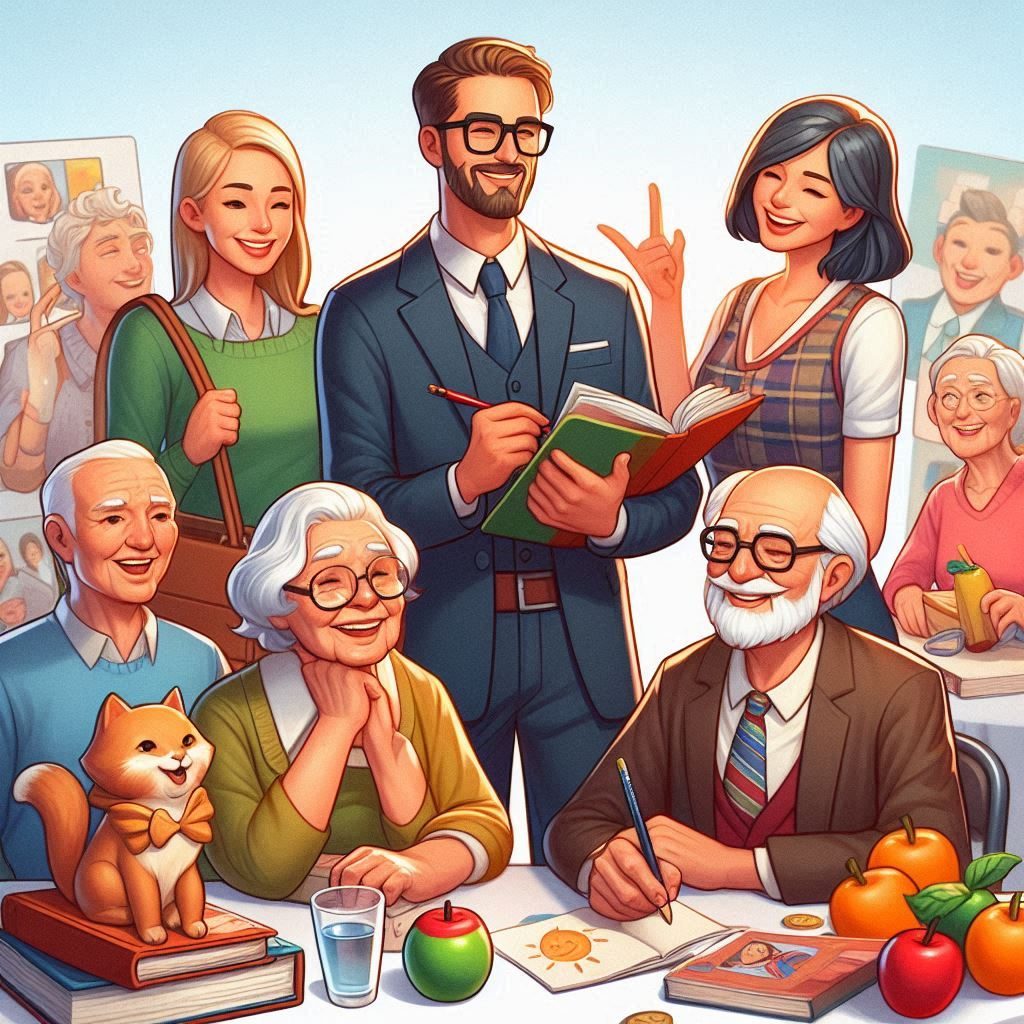The Role of Education in Lifelong Learning: Empowering Growth and Adaptation
Education is often seen as something that happens in the early stages of life—school, college, university, and maybe some training courses at work. But here’s the thing: learning doesn’t stop when you get your diploma or degree. The most successful people continue to learn throughout their lives. That’s where Lifelong learning comes in. It’s about embracing learning at every stage of life, whether 25 or 75. But what exactly is that, and how does education foster this mindset? Let’s dive into that.
What is Lifelong Learning?
Lifelong learning is the idea that education doesn’t end when formal schooling does. Instead, it’s an ongoing, self-motivated pursuit of knowledge for personal or professional reasons. Lifelong learners seek to improve their skills, broaden their knowledge, and stay curious about the world. It’s not about earning certificates or degrees—it’s about nurturing a mindset that values growth and development throughout life.
Why Lifelong Learning Matters?
The world is constantly changing. New technologies, evolving industries, and shifting societal needs mean that the skills you learned ten years ago may not be relevant today. Lifelong learning allows you to adapt to these changes, keeping you agile personally and professionally. Whether you learn new technology, pick up a hobby, or explore a new field of study, continuous learning helps you stay ahead of the curve.
The Foundation of Lifelong Learning: Formal Education
Primary and Secondary Education: Building Blocks
Formal education provides the foundation for lifelong learning. Primary and secondary schooling introduces us to essential skills like reading, writing, and critical thinking. These early stages are where we learn how to learn, a crucial skill we carry throughout our lives. Without this foundation, pursuing continuous education
Higher Education: Expanding Knowledge and Skills
Higher education takes this foundation and builds upon it, offering specialized knowledge in various fields. Whether through a university degree, vocational training, or technical courses, higher education equips individuals with the tools they need to succeed in their careers. But more than that, it fosters a curiosity for knowledge that is key to lifelong learning. Once you’ve developed the habit of learning in a formal setting, transitioning to informal, self-directed learning becomes easier.
The Shift from Formal to Informal Education
Learning Beyond the Classroom
While formal education lays the groundwork, the real magic of lifelong learning often happens outside the classroom. Informal learning happens all the time—when you read a book, watch a documentary, or even have a meaningful conversation. These moments are as valuable as formal education because they allow you to learn on your own terms. The flexibility of informal learning encourages exploration and curiosity.
The Role of Self-Directed Learning
In lifelong learning, you’re the captain of your ship. Self-directed learning means controlling what, when, and how you learn. This can be incredibly empowering because it allows you to focus on topics that interest you or are directly relevant to your life. Whether mastering a new language through apps or diving into coding via online tutorials, self-directed learners set their own pace and path.
Technology and Lifelong Learning
Online Courses and Digital Platforms
Technology has completely transformed the way we approach lifelong learning. With the rise of online courses and digital platforms, access to education has never been easier. You no longer need to enrol in a university to learn a new skill or subject. Websites like Coursera, Udemy, and Khan Academy offer courses on virtually any topic you can imagine. The best part? Many of these resources are free or available at a fraction of the cost of traditional education.
The Rise of Microlearning
One of the biggest trends in education today is microlearning—bite-sized chunks of information delivered in short, digestible formats. Think of it as snacking on knowledge rather than sitting down for a full meal. Apps like Duolingo and Blinkist are great examples of how microlearning can fit into our busy lives. By breaking down complex topics into small lessons, lifelong learners can progress in just a few minutes daily.
Lifelong Learning in the Workplace
The Importance of Continuous Professional Development (CPD)
Continuous professional development (CPD) is essential in today’s fast-paced job market. Employers value employees who show a commitment to learning and improving their skills. CPD can take many forms, from attending workshops and seminars to enrolling in certification programs. For many professionals, lifelong learning is the key to advancing their careers and staying competitive in an ever-changing job market.
Employer Support for Lifelong Learning
Many forward-thinking companies understand the value of supporting continued education. Employers often provide training programs, workshops, and even tuition reimbursement for employees wanting to further their education. This helps employees grow and benefits the company by ensuring that its workforce is skilled and adaptable.
The Social and Personal Benefits of Lifelong Learning
Staying Relevant in a Changing World
We’ve discussed the professional benefits of lifelong learning, but let’s not forget the personal side. ongoing learning keeps you engaged and curious about the world. It allows you to stay relevant, even as society and technology evolve. Whether learning for career reasons or personal fulfilment, staying intellectually active is key to maintaining relevance in today’s fast-paced world.
Mental and Emotional Growth Through Lifelong Learning
Lifelong learning isn’t just about knowledge—it’s about personal growth. Studies have shown that learning new things can improve cognitive function and stave off mental decline as we age. On an emotional level, learning can boost self-confidence and give you a sense of accomplishment. Whether picking up a musical instrument or a new hobby, continuous education fosters mental and emotional well-being.
Overcoming Barriers to Lifelong Learning
Time Constraints and Prioritization
One of the most common barriers to lifelong learning is time. Finding the time to learn can be challenging between work, family, and other commitments. The key here is prioritization. You don’t need to dedicate hours a day to learning. Even 10-15 minutes a day can make a difference over time. Microlearning and online courses allow you to fit learning into your busy schedule without feeling overwhelmed.
Financial Barriers to Continuing Education
Another barrier many people face is the cost of continuing education. While formal education can be expensive, many affordable (and even free) options exist for lifelong learners. Scholarships, grants, and employer-sponsored programs can help offset the costs of formal education. Additionally, the wealth of free online resources available today means that financial constraints don’t have to hold you back from learning.
Conclusion
The role of education in lifelong learning is undeniable. From the early stages of formal education to the self-directed, informal learning we engage in as adults, education fuels our curiosity, growth, and ability to adapt to an ever-changing world. As technology continues to break down barriers to education, lifelong learning has become more accessible than ever. Whether you’re pursuing personal interests or professional development, the pursuit of knowledge is a lifelong journey—one that pays dividends far beyond the classroom.
FAQs
1. What is the difference between lifelong learning and formal education?
Formal education refers to structured learning in schools, colleges, and universities, while perpetual learning is the ongoing pursuit of knowledge through formal and informal means throughout one’s life.
2. How can I incorporate lifelong learning into a busy schedule?
Microlearning, which involves short, digestible lessons and online courses, can fit into even the busiest schedules. Dedicate just 10-15 minutes a day to learning something new.
3. Does lifelong learning help in career advancement?
Absolutely. Continuous learning keeps your skills updated and can make you more competitive in the job market, opening up opportunities for career advancement.
4. What are some affordable ways to pursue lifelong learning?
Free online resources, scholarships, employer-sponsored programs, and platforms like Coursera or Udemy provide cost-effective options for lifelong learners.
5. How does lifelong learning benefit mental health?
learning can improve cognitive function, boost self-confidence, and provide a sense of accomplishment, contributing to overall mental and emotional well-being.


